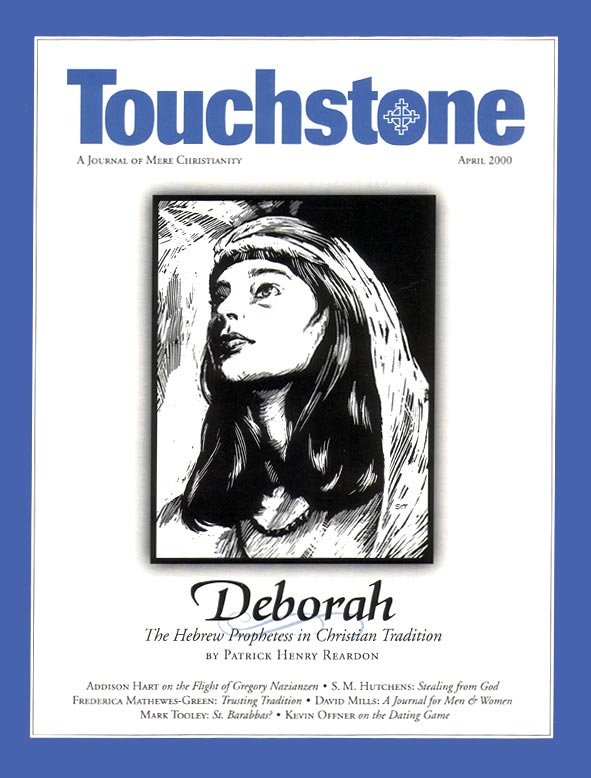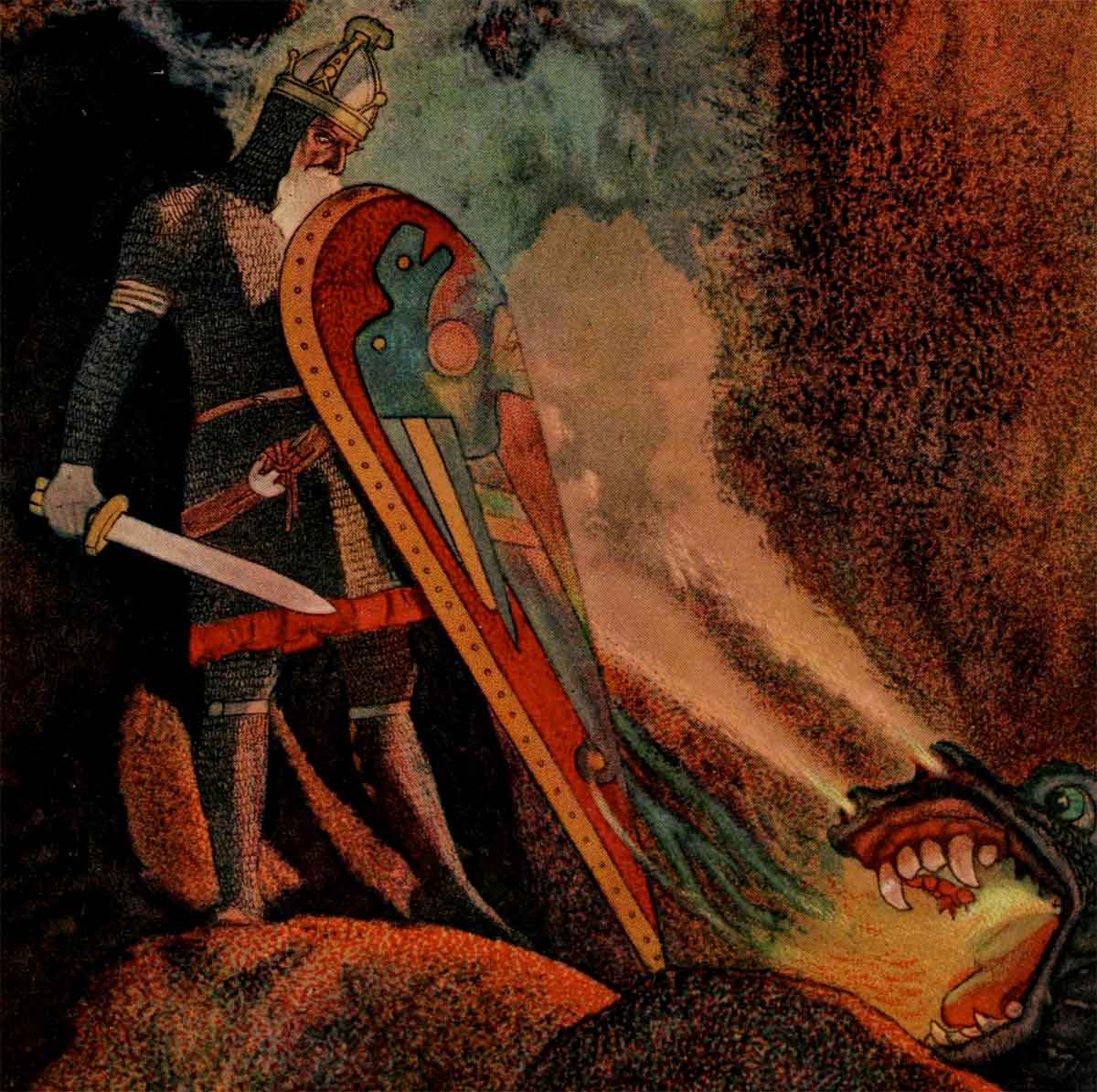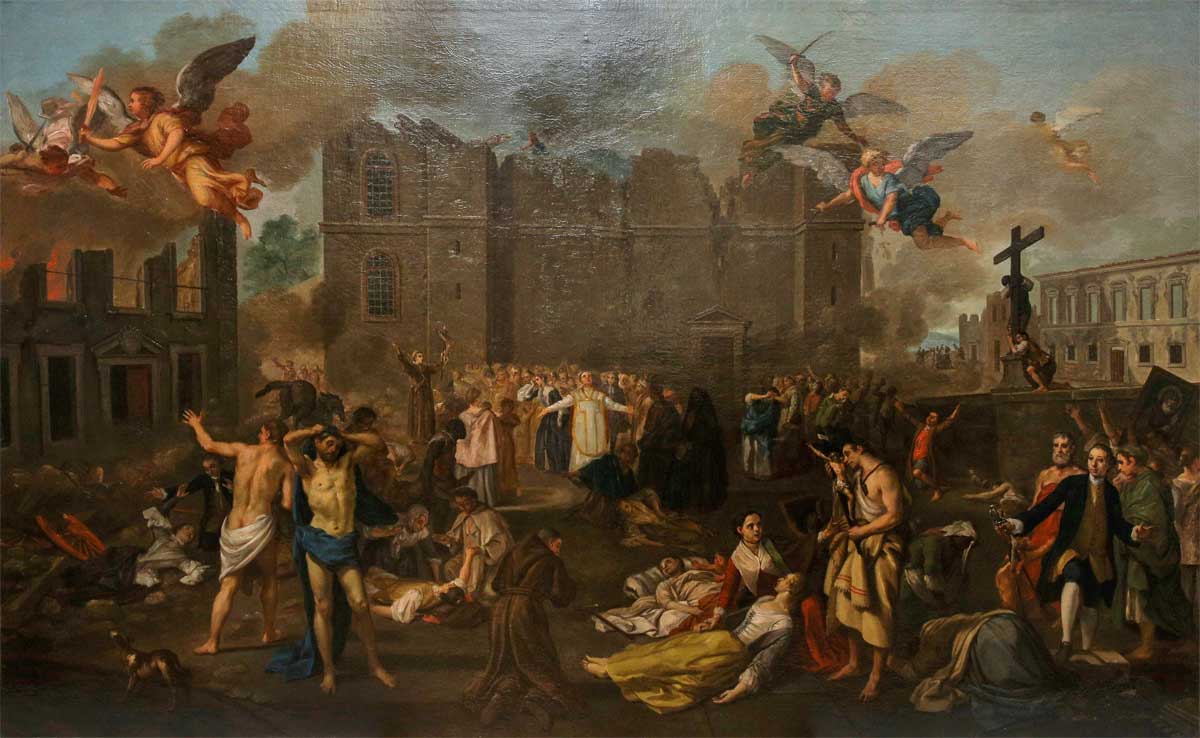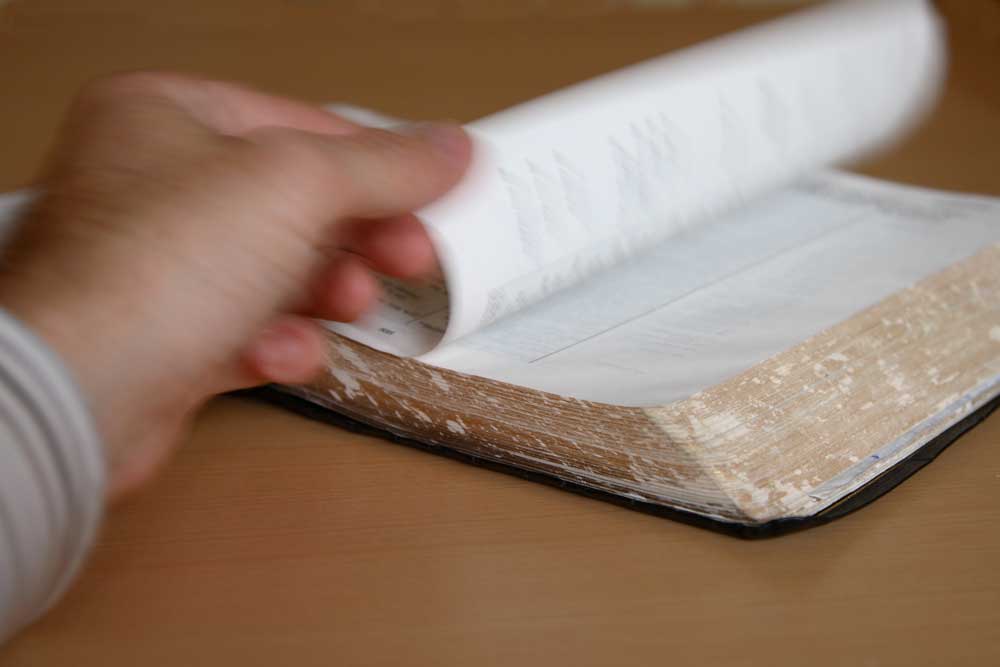Judge Deborah
The Hebrew Prophetess in Christian Tradition
by Patrick Henry Reardon
Early in the history of the Chosen People’s occupation of the Promised Land appears the matriarchal and prophetic Deborah, the only woman listed among the “Judges” that guided Israel’s various tribes during the two centuries or so between the Conquest and the rise of Saul. Most of what we know of this lady comes from chapters 4 and 5 of the Book of Judges,1 a historical account followed by a canticle showing signs of great antiquity. This material, prior to its incorporation into the literary sources of the Book of Judges, was probably preserved for a long time in Ephraim’s narrative traditions at the shrine of Bethel, not far from which stood the palm tree under which Deborah was known to sit and deliver oracular guidance to the people. Although we are not explicitly told so, the reference to forty years of peace in Judges 5:31 has suggested to some readers that this was the length of Deborah’s ministry.2
It is the purpose of the present article to examine the story in Judges 4 and 5 within the context of traditional Christian approaches to it, and more especially the characters within it, but most especially the character of Deborah herself. As we shall see, the traditional approaches to this narrative laid a particular stress on soteriology and the moral life. Toward the end of the study, I hope to offer some suggestions for further exegetical avenues to the story of Deborah.
With respect to both of our proposed lines of approach, soteriology and the moral life, another introductory comment may be in order.
Within the Deborah account itself, of course, there is already present an explicit interest in soteriology. Taken within the full context of the Book of Judges, this interest is certainly not concealed. The story is, first and last, an account of God’s deliverance of Israel from her oppressing enemies (“And the Lord routed Sisera”—Judges 4:15), and it stands within a lengthy series of such stories united mainly by this common theme. Indeed, if the several traditions within Judges, drawn from quite diverse local settings and tribal traditions, are joined by any element beyond mere chronology, the motif of God’s deliverance is certainly that element. The Book of Judges is essentially a detailed account of God’s repeated deliverance of his people through the agency of charismatic figures prior to the rise of the monarchy. The key to understanding Deborah, surely, is through that general consideration.
With regard to the theme of the moral life, on the other hand, one readily admits that this consideration is of far less importance to the purposes of the Book of Judges. Truly, if the inculcating of moral example ranked very high among those purposes, it would be difficult to explain how some of the juicier stories in Judges ever managed to find their place at all! In the Deborah account, nonetheless, such a moral interest is certainly present, at least in a minor key, and it is to be discovered chiefly in the accented contrast between the timid Barak and the more decisive and “executive” activities of the two women, Deborah and Jael. But more of this along the way.
The Queen Bee
The medieval German abbot Rupert of Deutz was of the opinion that the account of Deborah was “a plain story”; 3 consequently, he did not comment on it at great length. Other Christian readers, however, have ventured most interesting observations about that same narrative, finding arcane and mysterious significance in its structure and details. They reasoned that, if Deborah truly was a prophetess, as the sacred text says (Judges 4:4), serious readers should study her story in search of those deeper levels of spiritual meaning that might not be obvious to the more casual reader. Hidden mysteries, after all, are the very substance of prophecy, and such mysteries are to be explored and unraveled with spiritual insight, the wisdom given by the Holy Spirit (cf. 2 Corinthians 3:6). As in all of Holy Scripture, therefore, Christian readers have endeavored to find in the Deborah story the nourishing fruit of sacred doctrine concealed within the shell of its bare facts and historical meaning.
Instructed in etymologies mainly from the onomastica of Origen and Jerome, Christians always knew that Deborah’s name means “bee.” Though precious few of them could read Hebrew, this point was familiar to both Greeks4 and Latins.5 In addition, the name Deborah sounded as though it might have something to do with dabar, the Hebrew word for “word” or “speech.” While it is very uncertain that these two expressions, dabar and debora, do actually share a common root,6 it is sufficient for our purposes to observe that generations of Christian readers believed something of the sort, and they went to some lengths to exploit the exegetical possibilities of such a connection.
Jerome set the tone of the discussion. For him, Deborah meant “bee or talkative” ( apis vel loquax),7 or “bee or eloquence” ( apis sive eloquentia).8 Furthermore, apparently taking the word debora to be a diminutive of dabar, meaning “word,” Latin writers rendered it into an appropriate equivalent, apis sive loquela, “bee or (small) speech.” With this interesting suggestion the possibilities of meaning were dramatically enriched. The “speech” of Deborah was holy prophecy, and what could be sweeter than the words of prophecy? But sweetness suggested the image of honey, and bees, after all, make honey.
Patrick Henry Reardon is pastor emeritus of All Saints Antiochian Orthodox Church in Chicago, Illinois, and the author of numerous books, including, most recently, Out of Step with God: Orthodox Christian Reflections on the Book of Numbers (Ancient Faith Publishing, 2019).
subscription options
Order
Print/Online Subscription

Get six issues (one year) of Touchstone PLUS full online access including pdf downloads for only $39.95. That's only $3.34 per month!
Order
Online Only
Subscription

Get a one-year full-access subscription to the Touchstone online archives for only $19.95. That's only $1.66 per month!
bulk subscriptions
Order Touchstone subscriptions in bulk and save $10 per sub! Each subscription includes 6 issues of Touchstone plus full online access to touchstonemag.com—including archives, videos, and pdf downloads of recent issues for only $29.95 each! Great for churches or study groups.
Transactions will be processed on a secure server.
more from the online archives
calling all readers
Please Donate
"There are magazines worth reading but few worth saving . . . Touchstone is just such a magazine."
—Alice von Hildebrand
"Here we do not concede one square millimeter of territory to falsehood, folly, contemporary sentimentality, or fashion. We speak the truth, and let God be our judge. . . . Touchstone is the one committedly Christian conservative journal."
—Anthony Esolen, Touchstone senior editor










